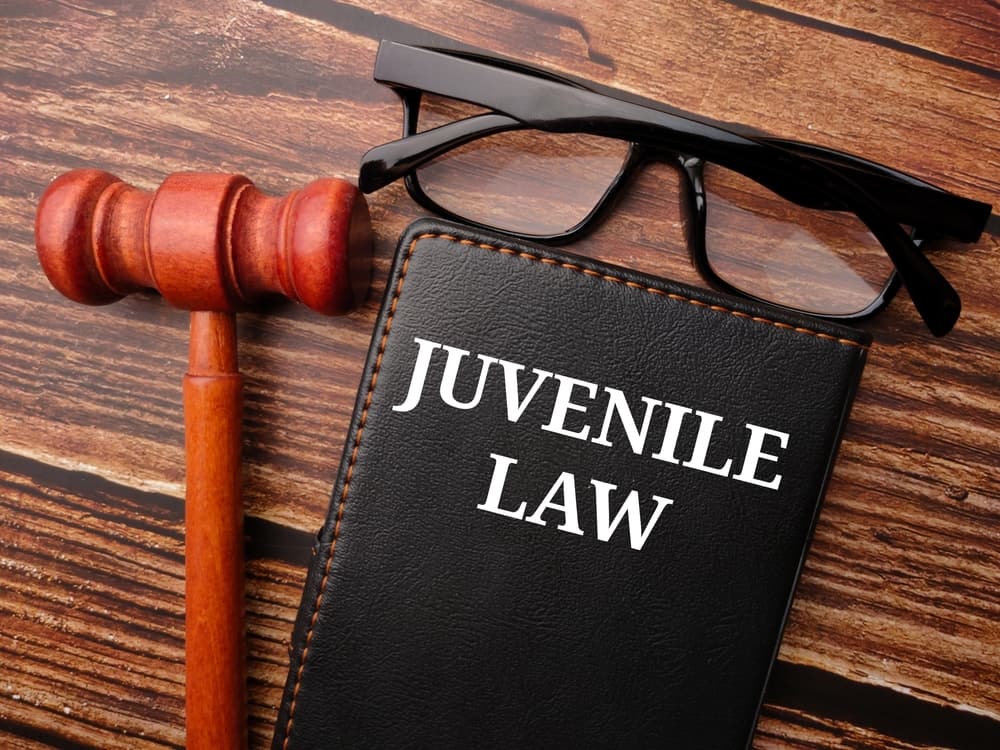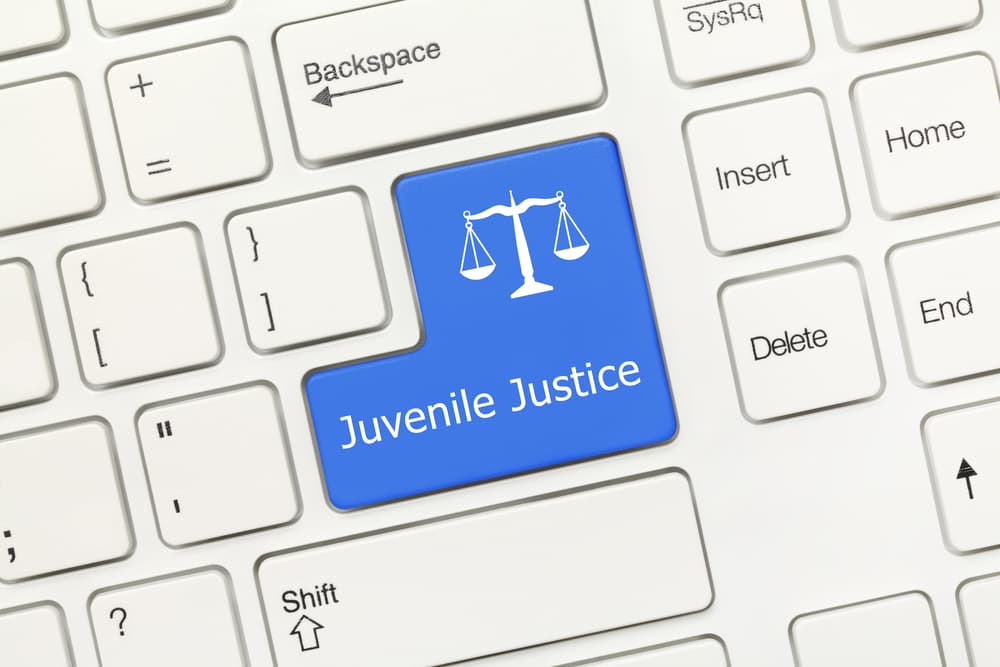When a juvenile is accused of a crime, the stakes are high, and the potential consequences can have a lasting impact on a young person’s future. In Texas, juvenile cases are handled very differently from adult criminal charges. A skilled criminal defense lawyer in Abilene like David M. White fights for the best possible outcome for your child.
At the Law Offices of David M. White, we understand the unique challenges families face when a juvenile is involved in a legal situation. If your child has been accused of a crime in Abilene, San Angelo, or surrounding areas, you need an attorney who knows the juvenile justice system inside and out. With experience and compassion, David M. White works tirelessly to protect your child's rights and future.
Why Juvenile Defense is Different

The juvenile justice system in Texas operates under the belief that children are not fully developed emotionally or mentally and, as such, should be treated differently from adults. The goal is often rehabilitation rather than punishment, a key distinction between juvenile and adult court proceedings.
In juvenile cases, the focus is on helping the minor get back on the right track rather than imposing harsh penalties. However, that doesn't mean juvenile cases should be taken lightly.
Depending on the severity of the charge, a juvenile can still face serious consequences, including detention, fines, probation, and a criminal record that can significantly impact college admissions, employment opportunities, and other prospects.
Common Juvenile Offenses in Texas
Juvenile offenses can range from minor infractions to more serious crimes. Some of the most common charges juveniles face in Texas include:
- Theft or Shoplifting
- Drug Possession
- Vandalism
- Assault
- Underage Drinking
- Trespassing
- Burglary
- Graffiti
- Traffic Violations
While these charges may seem minor, they can have significant consequences. For example, a charge of drug possession or assault can have long-term effects on a juvenile’s ability to get into college or join the military.
How Texas Law Defines a Juvenile
Under Texas law, a juvenile is defined as an individual between the ages of 10 and 17 who commits an offense. Focusing on rehabilitation rather than punishment for juvenile convictions reflects the belief that young people have the capacity to change. The system aims to correct behavior rather than impose severe penalties.
Juvenile vs. Adult Criminal Systems in Texas
The key difference between Texas's juvenile and adult criminal systems lies in their objectives. The adult system prioritizes punishment, while the juvenile system seeks to rehabilitate offenders.
Juveniles who commit crimes are often given opportunities to learn from their mistakes through education, counseling, probation, or diversion programs rather than facing jail time. Juvenile courts work to keep minors out of facilities like the Taylor County Detention Center whenever possible and often prioritize alternatives that support positive behavioral changes.
Proceedings in juvenile court are more informal than in adult court. Juveniles do not have a right to a jury trial for most offenses, and judges have broader discretion to tailor outcomes based on the minor’s needs.
What Happens When a Juvenile Turns 18?
If a juvenile is convicted of an offense before turning 18, their case will remain in the juvenile system, and they will serve their sentence under its jurisdiction, even after turning 18.
Texas law provides an exception known as the determinate sentencing process. Under this process, a juvenile may serve time in the juvenile system until they reach the age of 19. At that point, the court will decide whether to transfer them to an adult facility to complete their sentence or allow them to finish it in a juvenile facility.
On the other hand, if a juvenile commits an offense right before turning 18, they may still be tried in the juvenile system, depending on the timing of the arrest and the offense. This is why it’s critical for families to consult with a skilled defense attorney who understands the complexities of juvenile law in Texas, like David M. White.
When Juveniles Are Tried as Adults
While the juvenile justice system is generally lenient compared to the adult system, there are situations where a juvenile can be tried as an adult in Texas. If a minor who is 14 years or older commits a serious felony offense, such as murder, aggravated robbery, or sexual assault, the state may seek to certify the juvenile as an adult.
This process is called juvenile certification or a waiver of jurisdiction. If granted, the juvenile’s case will be transferred to adult criminal court, where they will face the same penalties as adults, including lengthy prison sentences.
The decision to certify a juvenile as an adult depends on factors including the nature of the crime, the juvenile’s age, prior criminal history, and whether the court believes rehabilitation within the juvenile system is possible. Once a juvenile is certified as an adult, they will be tried and sentenced in adult court, even if they are younger than 18.
The Juvenile Justice Process in Texas

When a juvenile is arrested or accused of a crime, their process is quite different from what adults experience. Here’s a breakdown of what typically happens in a juvenile case in Texas:
Detention Hearing
If your child has been detained, the first step is a detention hearing, which must occur within 48 hours of the arrest. During this hearing, the judge will decide whether your child can go home while awaiting trial or if they must remain in detention at a facility like the Taylor County Detention Center in Abilene.
Adjudication Hearing
Unlike adults who go to trial, juveniles attend an adjudication hearing. This is where the judge reviews the evidence and hears arguments from the defense and the prosecution. If the juvenile is found guilty, they will proceed to a disposition hearing.
Disposition Hearing
If the judge determines that the juvenile is guilty, the disposition hearing is where the penalties are decided. This is similar to sentencing in adult court, but in juvenile cases, the options are more focused on rehabilitation. Possible outcomes include probation, counseling, community service, or placement in a juvenile facility.
Appeal
If the case outcome is unfavorable, the juvenile has the right to appeal the decision. A skilled attorney like David M. White can guide your family through this process if necessary.
The Role of Parents and Guardians in Juvenile Cases
When a juvenile is accused of a crime, the role of parents or guardians becomes critical in shaping the case outcome. Unlike adult criminal proceedings, juvenile cases often require the involvement of parents at every stage, from the initial arrest through the resolution of the case.
A parent's active participation can make a significant difference in the legal process, offering emotional support to the child and ensuring their rights are protected.
Participation in Hearings and Legal Decisions
In Texas, parents or guardians are not only permitted but expected to attend all court hearings involving their child. Juvenile court proceedings are designed to be more inclusive, emphasizing the importance of family in the rehabilitation process.
Parents are typically involved in discussions about plea agreements, diversion programs, and any alternatives to detention. When a decision needs to be made, such as whether the juvenile should accept a plea deal or go to trial, a skilled juvenile crimes defense attorney will often advise the parents and the juvenile together, ensuring everyone is fully informed.
Parents are also key players in helping their child comply with court-ordered terms, such as probation, counseling, or educational programs. Their ability to support their child in fulfilling these requirements can influence the judge’s decisions on sentencing or dismissal of charges. This involvement helps show the court that the juvenile takes the process seriously and has a supportive family structure.
Supporting Their Child Through the Process
The legal system can be overwhelming and frightening for juveniles. They are still developing emotionally and may not fully grasp the gravity of the charges or the potential consequences.
Parents or guardians provide the emotional stability to help their child navigate this difficult experience. By staying involved, offering encouragement, and maintaining clear communication, parents can help reduce their child's emotional burden, allowing them to focus on working with their attorney to build a solid defense.
In addition, parents can help by gathering any necessary documentation, attending meetings with the attorney, and assisting with the legal strategy. They may also be called upon to provide character references or evidence of their child's positive behavior and future potential. This collaborative approach can significantly strengthen the defense, showing the court that the juvenile is supported and committed to making better choices.
Communication is Key
One of the most important factors in a successful juvenile defense is open and ongoing communication between the criminal defense lawyer, the juvenile, and their family. Juvenile cases are often more fluid than adult cases, with a wide range of potential outcomes based on how the case progresses.
Parents need to stay in regular contact with the defense attorney to stay updated on the case’s developments and understand what steps need to be taken. A strong partnership between the attorney, the juvenile, and the family can make all the difference in achieving the best possible outcome for the case.
Why You Need a Skilled Juvenile Defense Attorney
The juvenile justice system may focus on rehabilitation, but the consequences of a conviction can still be severe. A skilled attorney can make all the difference in your child's case. David M. White offers several advantages in juvenile defense, including:
In-Depth Knowledge of Texas Juvenile Law
Texas has its own set of laws and procedures regarding juvenile cases. Understanding these laws and their application in courts like Abilene Municipal Court is crucial for building a strong defense. David M. White has extensive knowledge of Texas law and knows the ins and outs of the juvenile system.
Local Experience
The Law Offices of David M. White has a deep connection to the Abilene and San Angelo communities. Our legal defense team regularly handles cases involving local institutions such as the Abilene Police Department, Taylor County Sheriff’s Office, and the Taylor County District Attorney. Our familiarity with the local court system gives us a unique advantage in representing juveniles in this area.
Negotiation Skills
Juvenile cases often offer more flexibility when it comes to negotiating outcomes. An experienced lawyer knows how to work with prosecutors to potentially reduce charges, avoid detention, or secure alternative punishments like community service or counseling. Our law firm has a track record of successfully negotiating favorable outcomes for juveniles.
Personalized Attention
At the Law Offices of David M. White, we provide personalized attention to every case. You won’t be passed around from lawyer to lawyer or feel like just another case number. Your experienced juvenile defense attorney takes the time to understand the unique aspects of each case and works closely with families to ensure the best possible defense.
A Skilled Criminal Defense Protects Your Child's Future

The goal of juvenile defense is not just to avoid immediate consequences but to protect your child’s future. A juvenile conviction can affect college admissions, job prospects, and housing opportunities. David M. White fights hard to keep your child’s record clean and prevent long-term damage.
Juvenile Cases in Abilene and San Angelo
Abilene and San Angelo, TX, are not immune to juvenile crime, and the local justice system takes these cases seriously. If your child has been accused of a crime in Abilene, they may interact with local institutions such as the Abilene Police Department or be detained at the Taylor County Detention Center.
A defense attorney who knows the key players in the local legal system, including the Taylor County District Attorney and judges who oversee juvenile cases in the Taylor County Courthouse, is a valuable advocate.
David M. White has extensive experience handling juvenile cases in West Texas. He understands how these cases are prosecuted locally and knows how to navigate the court system to achieve the best results for his clients.
How the Law Offices of David M. White Can Help
Acting quickly is important if your child has been accused of a crime in Abilene, San Angelo, or the surrounding areas. The earlier you involve a defense attorney, the better the chances of building a strong case. David M. White offers compassionate and dedicated representation, helping to guide your family through this difficult time.
- Case Evaluation: Our legal team will meet with you and your child to review the case details, ensuring you understand the charges and the potential consequences.
- Defense Strategy: We will develop a tailored defense strategy based on the specifics of your child’s situation. We will fight for the best possible outcome, whether challenging the evidence, negotiating a plea deal, or taking the case to trial.
- Communication: Throughout the process, David M. White maintains open and clear communication, informing you about the case’s progress and any new developments.
Don’t Leave Your Child’s Future to Chance: Contact the Law Offices of David M. White Today
When a juvenile is accused of a crime, it’s natural for parents to feel anxious and unsure of what to do next. The legal process can be confusing, and the stakes are high for your child’s future. A skilled juvenile defense attorney like David M. White can make all the difference in these moments.
Our juvenile defense team understands the local justice system in Abilene and San Angelo, has the knowledge to navigate Texas juvenile law, and is committed to protecting your child’s future.
If your child is facing criminal charges, don’t wait to seek legal help. Contact the Law Offices of David M. White today for a consultation and take the first step toward securing a brighter future for your child. Call our Abilene office at 325-437-3311, our San Angelo, TX office at 325-221-4421, or contact us online.
